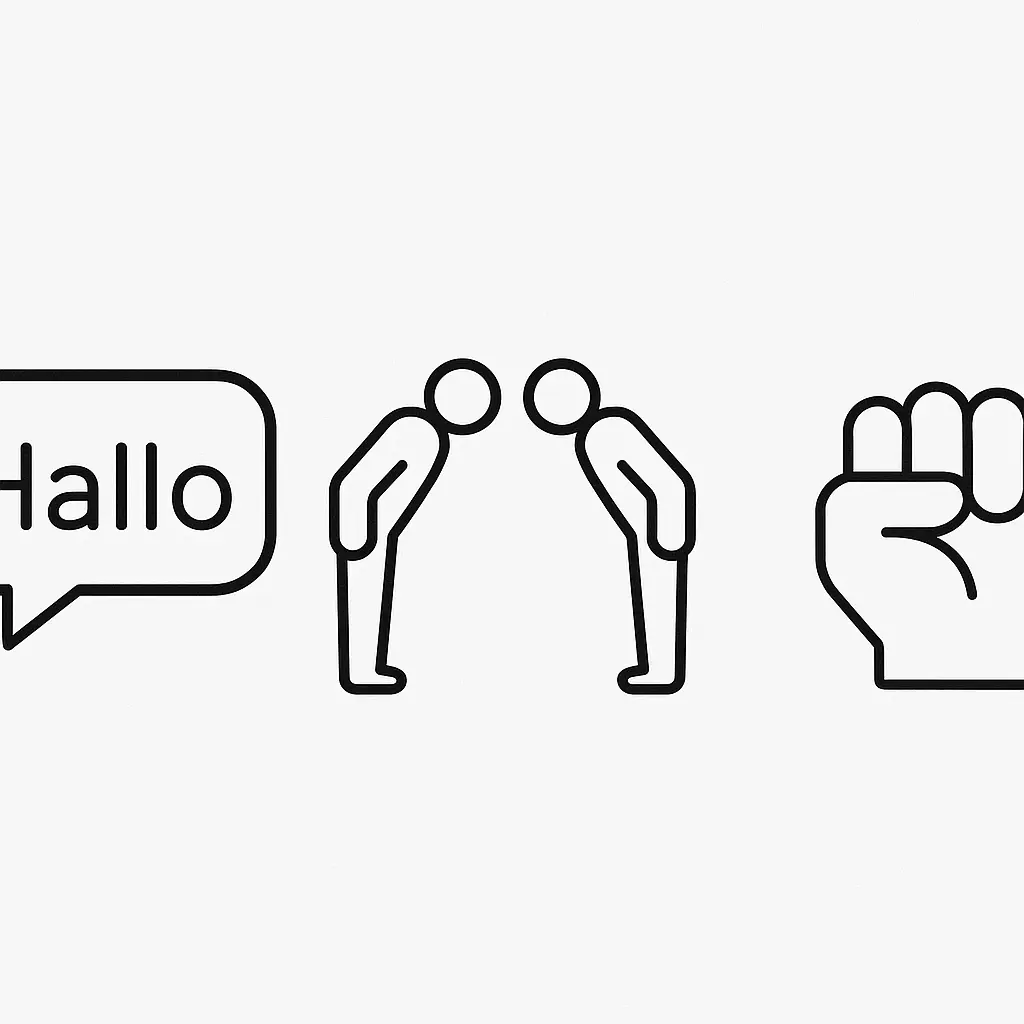It is becoming increasingly noticeable that words like “hello,” “please,” or “thank you” are rarely spoken in everyday life. What once seemed natural now appears to some as unnecessary or even old-fashioned. But why is that – and what can we do to counter this development?
One reason lies in digitalization. More and more communication takes place through messengers or chats, where emojis and abbreviations replace whole sentences. Language becomes more factual, shorter, and loses its warmth. Working from home and increasing social distance also play a role. When encounters at the office, in the supermarket, or on the street occur less frequently, there are simply fewer opportunities to practice politeness. In addition, the anonymity of the internet makes it easy to lose respect. Those who insult or ignore others online often unconsciously adopt this behavior in real life. Finally, the constant pressure of time and performance leads many people to believe they have no room for “unnecessary” words.
The result is a society in which respect, appreciation, and human warmth slowly fade away. Yet small words likeplease” und “Thank you” are anything but trivial. They are expressions of mindfulness and recognition. They convey: I see you, I respect you. Without them, an atmosphere of indifference arises, which in the long run leads to alienation.
An interesting counterbalance can be found in the path of Karate-Do. Practicing karate is not just about physical techniques, but also about character, respect, and discipline. Every training session begins and ends with a bow – a ritual of appreciation. Partner exercises are only possible with mutual trust and respect. The inner attitude taught by karate – discipline, humility, and self-control – flows directly into life outside the dojo. Terms such as Rei (respect, courtesy) and Do (the way) remind us that karate is more than a sport – it is a way of life.
Children and young people benefit especially from this approach. In a time when digital contact often seems more important than personal encounters, the dojo creates a space where fundamental values are lived and experienced. The clear structure and hierarchy in karate provide orientation and security. Children learn that respect and authority belong together and that they themselves deserve to be treated respectfully. Through training with partners, they develop empathy, learn to notice the reactions of others, and respond appropriately.
Paradoxically, karate also teaches young people to resolve conflicts peacefully. They discover that true strength lies in self-control and that respect often achieves more than aggression. The belt system demonstrates that success comes only through perseverance and continuous practice. This helps children to face challenges rather than avoid them, growing step by step. At the same time, karate’s Japanese origins open their minds to other cultures. Young people realize that politeness is a universal language that builds bridges and creates connections.
The values learned in karate quickly show up in everyday life. Children who practice karate communicate more consciously, look others in the eye, speak clearly, and listen attentively. Parents often report that their children have become more polite, helpful, and considerate. This awareness also extends to digital spaces: young karateka understand that behind every screen is a human being who deserves respect.
Over time, children also begin to take on responsibility in the dojo. They help beginners, take care of equipment, and learn that being part of a community means having duties as well as rights. They discover that setbacks are part of learning and that mistakes are opportunities for growth. This makes them resilient and provides inner calm. In a hectic world, the dojo becomes a place of reflection and concentration.
The decline in the use of words like “hello,” “please,” and “thank you” reflects the changes in our society. Karate-Do shows us how important these gestures are – not as empty phrases, but as a genuine attitude. For young people especially, karate offers the chance to internalize values during a formative stage of life that will accompany them for years to come. They learn self-discipline, respect, empathy, and conflict management. These are skills that prove valuable not only in the dojo, but also at school, at work, and in future leadership roles.
With all its positive influences, karate is more than just a sport. It is training for life. Or, as an old Budo saying goes: Karate begins with respect and ends with respect – and in the process, it shapes the person who practices

